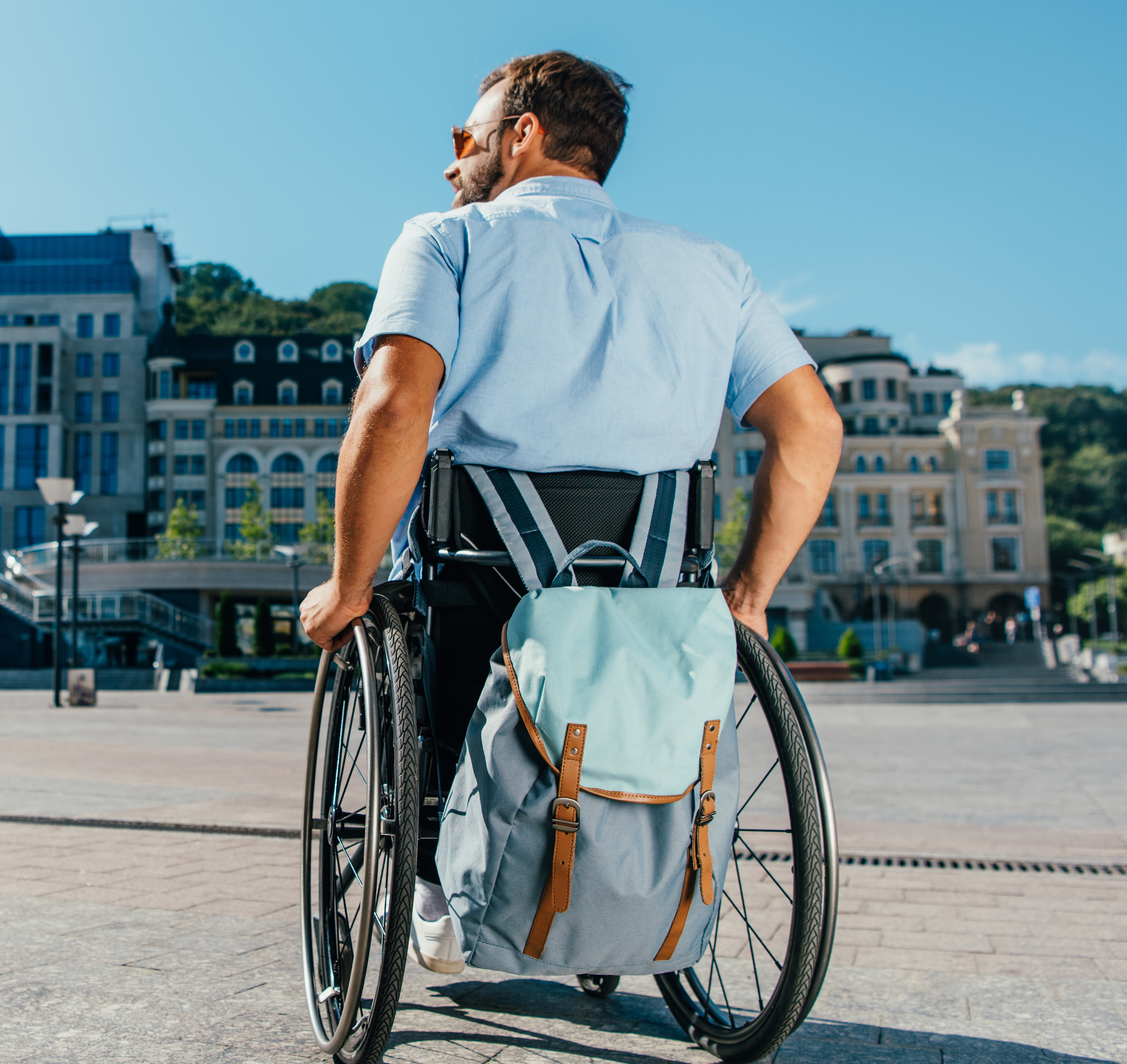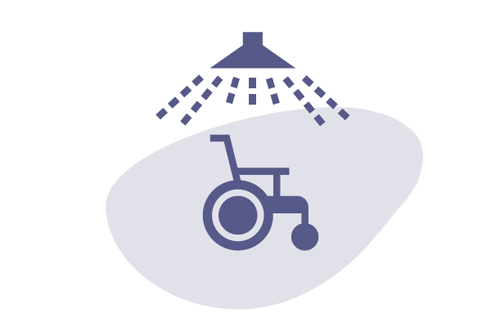
How to Protect Yourself as a Wheelchair User
01 December, 2021
Written by Karma Medical
To prevent the spread of Coronavirus (COVID-19), it is known that washing your hands frequently and self-isolating if you feel even slightly unwell are the most basic and important prevention measures. However, is there an easy way to keep wheelchair users' hands clean? What should caregivers be paying special attention to in order to prevent the spread of infection? Karma Medical have put together a great guide with top tips on how to stay safe during the pandemic.
Tip 1
Carry alcohol hand sanitiser, to clean your hands and the important parts of the wheelchair
75% diluted alcohol is the most effective protection for wheelchair users! We recommend that you divide the hand sanitiser into small bottles and carry it with you. When it is not convenient to wash your hands, you can use the hand sanitiser to disinfect the parts of the wheelchair that you touch most often e.g. the armrests, joystick control, push rims, etc. After you have sanitised your wheelchair, spray your hands again for good measure. We know that there are some wheelchair users working during this time who often need to deal with money, these users must disinfect their hands more often. Many people will also carry dry cleaning liquid or sanitising wet tissues, as long as they can disinfect, they can also be used when going out without regular access to bathrooms to wash their hands.
![]()
Tip 2
Wear Gloves
There are many wheelchair users who like to wear gloves when using their wheelchairs, which is also a great way of preventing the spread of infection. However, most people are wearing just cotton gloves. During the pandemic, it is recommended to replace and wash the gloves with soapy water every day to avoid the virus remaining and lingering on the fabric. If you need to enter or leave a higher-risk place, such as a hospital, we recommend that you use disposable gloves (such as Latex).
![]()
Tip 3
Maintain a healthy diet and regular work and rest schedule
The physical condition and metabolism rate of most wheelchair users are weaker than that of non-disabled people. During the pandemic prevention period, it is necessary to maintain a normal work and rest schedule. Eating healthily, maintaining a proper exercise routine, and keeping warm will help you maintain a healthy body and good physical strength to fight against a virus. Also try to avoid eating out and eating with others to further prevent the spread of any infections.
![]()
Tip 4
Maintain social distance and avoid crowds
The New Zealand Government and Ministry of Health recommends that everyone should maintain a social distance of 2 metres or more. During the pandemic prevention, in addition to avoiding places with too many people, you can connect with friends and family through video calls, and try to avoid going outdoors.
![]()
Tip 5
Make sure caregivers are keeping on top of their personal hygiene
Some wheelchair users need the assistance of caregivers. The personal hygiene and cleanliness of the caregivers themselves must be done according to the standards of the Centre of Disease Control. Before assisting wheelchair users, caregivers should protect themselves in order to protect others.
![]()
Tip 6
Clean your wheelchair regularly
When a wheelchair has been used for a long period of time or used in places that are not properly cleaned, dirt and germs can hide in the seat and back cushions. Although these are not as threatening as coronavirus, long-term exposure can weaken the immunity of wheelchair users.

In conclusion, more attention should be paid to the cleaning of wheelchairs during pandemic prevention periods. Whether you clean it yourself or send it back to the original factory to be professionally disinfected, ensure to clean any surface that you touch and look after your own health.
If everyone follows the steps to prevent the virus spreading and takes extra precautions then we can get through this tough time together.
Stay Safe, Stay Home!
